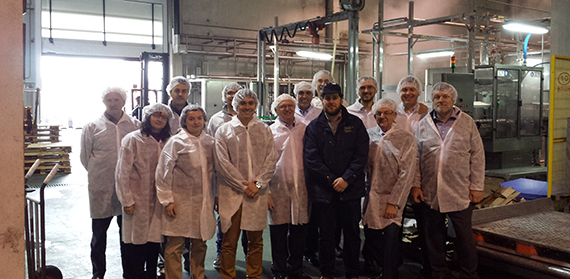Until recently, the concept of a global production network was just that: a concept. Thanks to an ever-changing world, a rapidly expanding global economy and a greater reliance on global supply chains, global production networks are far more prevalent. FLEXINET for Horizon 2020 seeks to provide support to global production networks, responding to changes in business environment and demand along the way. What are the logistics and configurations needed to produce at scale? This is just one of the questions the project seeks to answer.
Researchers at Coventry University have teamed with 3 main businesses for this important project, as well as leading research institutes and software developers from Germany, Italy, Switzerland, Spain and the US.
For KSB, the impact of understanding the decision to start a new production line is crucial. Particularly when dealing with products and services ranging in scale from industrial water pumps to nuclear reactors. Well-known white-goods manufacturer Indesit face their own set of challenges. How can we predict product failures before they occur, and what are the risks? What are the implications of moving business to sell ‘product-services’, such as selling goods with a complete service package? For Custom Drinks, the challenges differ. A maker of cider and other specialist drink products, Custom Drinks produce drinks in comparatively short-runs, with main costs stemming from packaging. The project seeks to evaluate the impact of this very different business model on their supply chain.
FLEXINET will develop prototype applications to support user decision making, based on an architecture delivering services based on novel modelling methods to encompass all aspects of network configuration, including economic and risk assessment and management, built on a novel global production network ontology.
The project seeks to develop solutions to the needs of businesses through vital testing with an emphasis on risk management, and specifically, the management of uncertainty. Testing scenarios are designed with the end user in mind, and through use of knowledge management software, we seek to help create better structured, better developed business models. Looking to the future we are able to envisage the development of our own set of software services, providing full integration into already-existing architecture. Ongoing tests and responses will ultimately be used to develop a final product which would be taken forward for commercial use. At the half-way progress point, the future certainly looks bright for this particular area of research.




Comments are disabled